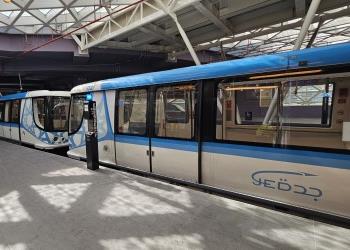

| Download the infographic here |
 Commentary
Commentary
Neha Bhatia
Construction editor
Saudi construction remained bright spot of 2020
Tendering activity in Saudi Arabia has provided bouts of market optimism during an otherwise bleak year for the GCC’s construction industry.
Market sentiment about work prospects in the kingdom was largely positive in 2020.
Even during the second quarter, when the Covid-19 pandemic was at its peak in the region, Saudi Arabia procured bids for a utilities contract on the Red Sea and awarded an earthworks contract for the Amaala tourism project.
Between April and June, it also launched tenders for rail sector investment reviews and construction and rehabilitation work at the Jeddah Islamic port.
 The kingdom’s largest construction developments advanced significantly last year, bucking the activity slowdown that the pandemic has induced in other regional and global markets.
The kingdom’s largest construction developments advanced significantly last year, bucking the activity slowdown that the pandemic has induced in other regional and global markets.
Notable progress was made on the kingdom’s so-called ‘gigaprojects’, all of which are backed by the Public Investment Fund.
Tendering and construction work progressed at the Neom and Diriyah Gate tourism projects, and Amaala’s developers awarded an airport scheme in 2020.
The company plans to award another aviation contract for Amaala in the second quarter of 2021, in addition to main contracts for the project’s first six hospitality assets.
Moreover, Saudi Arabia’s ambitious home-building drive has continued under the oversight of the housing ministry.
Transport schemes such as the Saudi Landbridge and Riyadh Metro phase 2 advanced last year, and several public-private partnership (PPP) schemes were announced to deliver schools, homes and hospitals.
It is clear that Riyadh’s appetite for reforms is helping to renew construction activity in the kingdom, which is widely believed to be facing a shortage of construction contractors to deliver its Vision 2030 schemes.
In response to these legacy challenges, the kingdom has overhauled its procurement law and worked to streamline capital expenditure plans with the aim of stimulating investment in the construction sector.
More importantly, Riyadh has firmly established its intent to expand private sector participation in construction projects through PPPs, government-related entities and foreign direct investment.
Saudi Arabia has sent loud and bold signals of long-term project commitments to construction companies and investors in 2020.
Now, regional contractors that are seeking new work, but shying away from Saudi Arabia due to its legacy market issues, must reconsider their medium- to long-term strategy for the Middle East.
After all, given the pace at which the kingdom’s large-scale construction schemes are advancing, it may soon become essential for engineering companies to have Saudi projects on their order books to buoy their regional presence.
You might also like...

Petrofac awards Adnoc carbon capture sub-contract
18 April 2024

Neom tenders Oxagon village school construction
18 April 2024

Clarifications advance for Neom renewables
18 April 2024

Alstom wins Jeddah airport deal
18 April 2024
A MEED Subscription...
Subscribe or upgrade your current MEED.com package to support your strategic planning with the MENA region’s best source of business information. Proceed to our online shop below to find out more about the features in each package.





